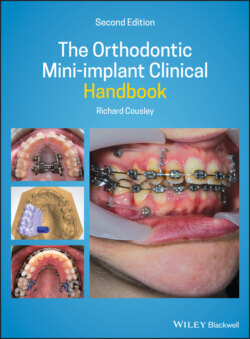Читать книгу The Orthodontic Mini-implant Clinical Handbook - Richard Cousley - Страница 22
1.9 Medical Contraindications
ОглавлениеThere are no absolute medical contraindications which specifically apply to orthodontic mini‐implants. Conditions, such as diabetes mellitus and immunosuppression, which are relative contraindications to orthodontic treatment in general must be considered in terms of soft tissue hyperplasia and infection risks. However, if the patient has good oral hygiene then comprehensive treatment may proceed as normal. Older, especially female, patients with osteoporosis may present problems in terms of reduced bone support and hence mini‐implant stability, but this can be accounted for in terms of insertion site and force application considerations. The increasing number of older patients on bisphosphonate drug treatment are a specific group which may limit orthodontic treatment, especially against tooth extractions (because of osteonecrosis risks). Whilst I have successfully treated patients taking oral bisphosphonates with routine orthodontic treatment (e.g. alignment), I have no experience of using mini‐implants in this group of patients and am unaware of any literature published on this.
